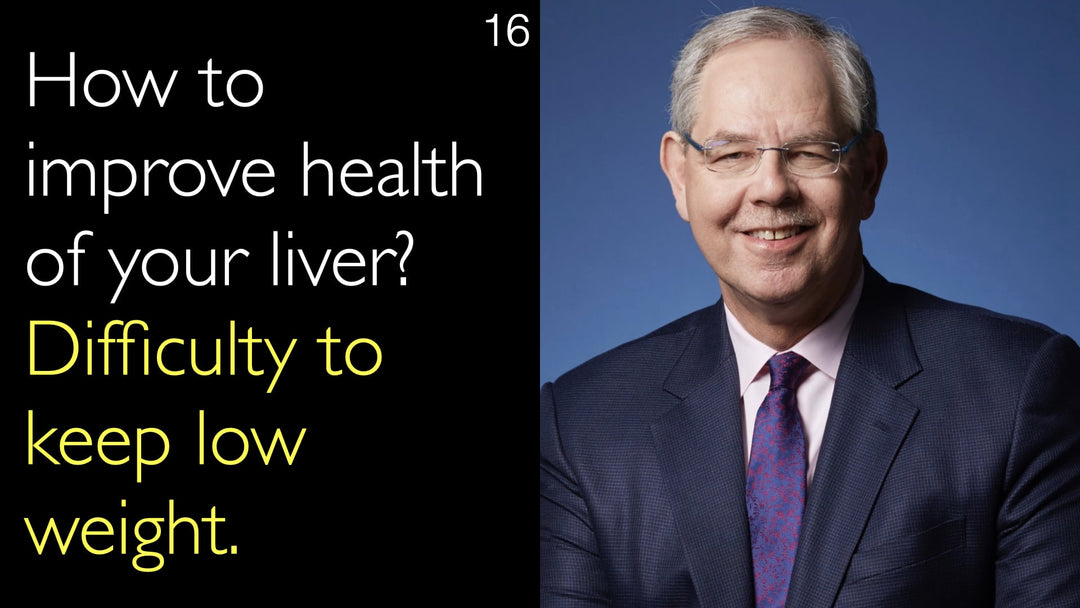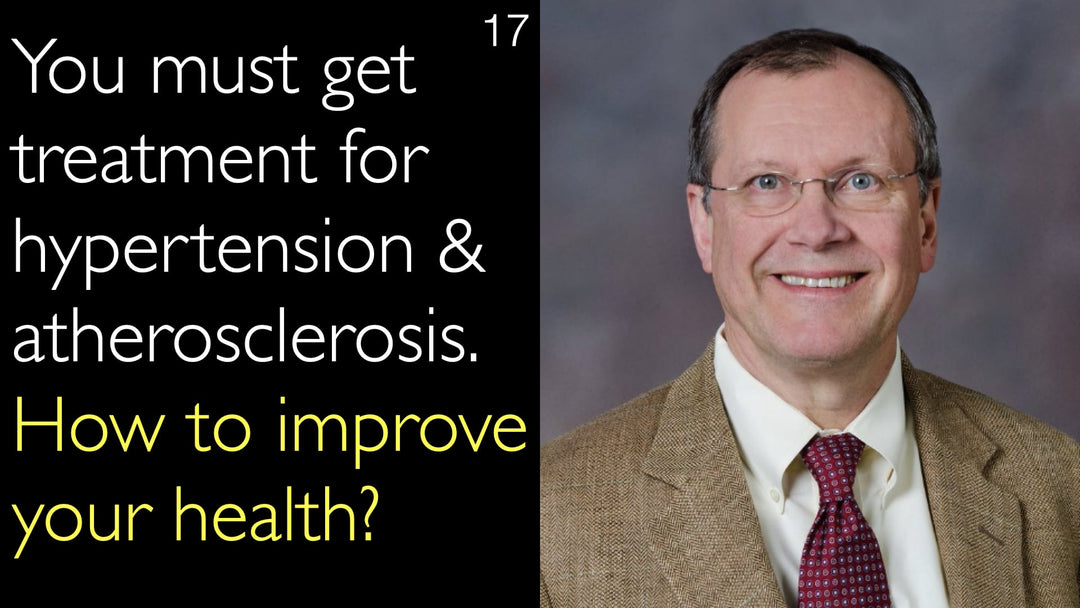Dr. Stephen Evans, MD, ein führender Experte für Impfstoffsicherheit und unspezifische Impfeffekte, erläutert die komplexe Studienlage zum möglichen Einsatz etablierter Impfstoffe wie BCG und Polio gegen COVID-19. Ausführlich geht er auf die Schwierigkeiten bei der Interpretation von Beobachtungsdaten aus Ländern mit niedrigem und mittlerem Einkommen ein. Dr. Evans betont die dringende Notwendigkeit großer, randomisierter kontrollierter Studien (RCTs), um tatsächliche Schutzwirkungen zu bestätigen. Er warnt davor, dass die einzigartige Pathologie von COVID-19 möglicherweise nicht auf Impfstoffe anspricht, die bei anderen Atemwegserkrankungen wirken. Abschließend stellt er fest, dass bisher keine überzeugenden Belege dafür vorliegen, dass diese Impfstoffe den Verlauf von COVID-19 beeinflussen.
Unspezifische Impfeffekte auf COVID-19: BCG, Polio und MMR
Direkt zum Abschnitt
- Unspezifische Impfeffekte erklärt
- BCG-Impfstoff und COVID-19
- Herausforderungen von Beobachtungsstudien
- Komplexität der COVID-19-Erkrankung
- Notwendigkeit randomisierter Studien
- Vollständiges Transkript
Unspezifische Impfeffekte erklärt
Dr. Stephen Evans, MD, bestätigt, dass Impfstoffe über die Zielerkrankung hinaus wirken können. Diese Effekte werden als unspezifisch bezeichnet. Als Paradebeispiel nennt er die überraschende Wirksamkeit des BCG-Impfstoffs gegen bestimmte Formen von Blasenkrebs. Diese breite Immunstimulation bildet die Grundlage für die Erforschung von Impfstoffen wie BCG, Polio und MMR gegen COVID-19.
BCG-Impfstoff und COVID-19
Frühe Daten aus Studien an Neugeborenen zeigten, dass BCG- und Polio-Impfungen die Sterblichkeit durch nicht verwandte Infektionen wie Lungenentzündung und Sepsis senken. Dr. Stephen Evans, MD, weist auf ein entscheidendes Detail aus seiner eigenen Forschung hin: Diese Sterblichkeitsreduktion trat überwiegend in den ersten drei Wochen nach der Impfung auf. Dieser kurze Zeitraum wirft Fragen zur Natur des Effekts auf. Zudem ergab eine aktuelle Analyse aus Israel, dass eine BCG-Impfung im Kindesalter bei jungen Erwachsenen das COVID-19-Infektionsrisiko nicht beeinflusste.
Herausforderungen von Beobachtungsstudien
Eine große Hürde in dieser Forschung ist die Interpretation von Beobachtungsdaten. Dr. Stephen Evans, MD, erklärt, dass in Ländern mit niedrigem und mittlerem Einkommen Kinder, die bestimmte Impfstoffkombinationen erhalten, nicht zufällig ausgewählt werden. Dies birgt ein erhebliches Potenzial für Selektionsbias. Es sei sehr schwierig, echte Impfeffekte von den inhärenten Unterschieden zwischen geimpften und ungeimpften Kindern zu trennen. Da Impfprogramme für Kinder so effektiv sind, ist die kleine ungeimpfte Gruppe oft grundlegend anders, was Vergleiche unzuverlässig macht.
Komplexität der COVID-19-Erkrankung
Dr. Stephen Evans, MD, betont, dass COVID-19 eine einzigartig komplexe Erkrankung ist. Sie betrifft nicht nur die Lunge, sondern auch die Gefäßwände und verursacht ungewöhnliche Gerinnungseffekte. Das Virus wirkt sich dramatisch auf die Nase aus, wobei ein plötzlicher Verlust von Geschmacks- oder Geruchssinn ein zentrales klinisches Symptom ist. Ein Impfstoff, der gegen einfachere Lungenerkrankungen wie Lungenentzündung wirkt, könnte bei COVID-19 aufgrund der vielschichtigen Pathologie unwirksam sein. Dr. Evans erklärt, dass diese Komplexität den Einsatz anderer Impfstoffe ungewiss macht.
Notwendigkeit randomisierter Studien
Dr. Evans stellt klar, dass große, randomisierte kontrollierte Studien (RCTs) unerlässlich sind, um überzeugende Beweise zu liefern. Beobachtungsstudien allein seien sehr schwer zu interpretieren. Zwar laufen Studien mit bestehenden Impfstoffen gegen COVID-19, doch gebe es noch keine starken Belege für deren Wirksamkeit. Dr. Stephen Evans, MD, schlussfolgert, dass ohne Daten aus ordnungsgemäßen Studien die medizinische Gemeinschaft nicht bestätigen kann, wie viele dieser unspezifischen Effekte real sind.
Vollständiges Transkript
Dr. Anton Titov, MD: COVID-19 und unspezifische Wirkungen des BCG-Impfstoffs und des Poliomyelitis-Impfstoffs. Professor Evans, eines Ihrer Expertisegebiete ist die Bewertung der unspezifischen Effekte von Impfstoffen. Sie waren Mitglied des WHO Global Advisory Committee on Vaccine Safety; Sie arbeiteten bei der UK Medicines Control Agency und befassten sich mit großen Impfstoffsicherheitsbedenken.
Es ist heute ein sehr aktuelles Thema: die potenzielle Fähigkeit des BCG-Impfstoffs – Impfstoff gegen Tuberkulose – und des Poliomyelitis-Impfstoffs, das angeborene Immunsystem allgemein zu stimulieren und möglicherweise das Infektionsrisiko für das COVID-19-Coronavirus zu senken.
Die Grundlage solcher Hoffnungen sind Daten aus Studien zur Impfung von Neugeborenen mit dem BCG-Impfstoff sowie mit dem Poliomyelitis-Impfstoff und möglicherweise mit dem MMR-Impfstoff. Es zeigte sich, dass die Impfung die Sterblichkeit durch nicht verwandte respiratorische Viren, durch Lungenentzündung und durch Sepsis oft um erhebliche Prozentsätze verringerte.
Am interessantesten ist jedoch, dass Sie in einer Ihrer Veröffentlichungen zeigten, dass die Ergebnisse bei der Reduktion der Sterberaten überwiegend in den ersten drei Wochen nach der Impfung auftraten. Diese Ergebnisse könnten darauf hindeuten, dass es sich eher um einen statistischen Fehler handelt als um wirklich beobachtete Effekte, da die Kinder für oder gegen eine Impfung ausgewählt worden sein könnten.
Es ist tatsächlich sehr interessant, dass eine kürzliche Analyse aus Israel zeigt, dass der Einfluss der BCG-Impfung im Kindesalter auf das Risiko einer COVID-19-Coronavirus-Infektion bei jungen Erwachsenen keinen Unterschied zeigte. Das gibt uns also keine Information, ob eine frische, echte Impfung von Erwachsenen mit BCG-Impfstoff oder Poliomyelitis-Impfstoff dennoch helfen könnte, das COVID-19-Infektionsrisiko zu reduzieren.
Was sind Ihre Gedanken zu den unspezifischen Effekten des BCG-Impfstoffs, des oralen Poliomyelitis-Impfstoffs oder des parenteralen Poliomyelitis-Impfstoffs und möglicherweise des MMR-Impfstoffs, um andere respiratorische Infektionen zu verhindern und möglicherweise das Infektionsrisiko mit COVID-19 zu verringern?
Dr. Stephen Evans, MD: Wie ich bereits sagte, bin ich kein Virologe, daher kann ich keine Meinung als Virologe abgeben. Was ich sagen kann, ist, dass wir wissen, dass Impfstoffe allgemein Wirkungen auf den Körper haben können, die über die Bekämpfung des Virus oder der anderen Erkrankung, gegen die der Impfstoff gerichtet ist, hinausgehen.
Solche unspezifischen Effekte können auftreten. Eine der faszinierenden Tatsachen ist, dass BCG bei bestimmten Formen von Krebs wirksam ist, insbesondere in Bezug auf Blasenkrebs. Sie können also überraschende Wirkungen haben.
Das Problem ist, dass wir bei Beobachtungsstudien dazu, insbesondere wenn wir mit Kindern in Ländern mit niedrigem und mittlerem Einkommen umgehen, feststellen, dass die Art von Kindern, die bestimmte Impfstoffkombinationen erhalten, diese nicht zufällig bekommen. Es ist sehr schwierig zu unterscheiden, was ein echter Effekt ist und was einfach ein Selektionsbias bei den Geimpften ist.
Eines unserer Probleme ist also, dass wir ohne ausreichend große Studien nicht sortieren können, wie viele dieser unspezifischen Effekte echt sind und wie viele nicht.
Wenn es nun darum geht, die Wirkung des BCG-Impfstoffs und einer Reihe von Kinderimpfstoffen auf COVID-19 zu bewerten, haben wir oft ein großes Problem, weil die Kinderimpfprogramme in vielen Ländern außerordentlich effektiv sind. Sehr große Zahlen – ein großer Anteil der Kinder – bekommen diese Impfstoffe.
Die Kinder, die sie nicht bekommen, sind wirklich ganz anders. Der Versuch, die Unterschiede zwischen Kindern, die zufällig geimpft wurden, und denen, die nicht geimpft wurden, zu entwirren, ist sehr, sehr schwierig.
Ich denke also, dass Beobachtungsstudien ziemlich schwer zu interpretieren sind. Aber sicherlich haben wir bisher keine starken Beweise, dass die Gabe dieser anderen Impfstoffe eine Wirkung auf COVID-19 hat.
Eines der Probleme, wie ich bereits sagte, ist, dass COVID-19 eine sehr komplexe Erkrankung zu sein scheint. Sie betrifft nicht nur die Lunge, sondern scheint auch die Auskleidung der Blutgefäße zu betreffen. Sie führt zu recht seltsamen Effekten in der Gerinnung.
Wir sind uns nicht sicher, wie einfach es sein wird, das Virus aus der Nase zu entfernen, selbst mit Impfstoffen. Wir wissen bereits, dass der empfindlichste, beste Test für COVID-19 in Bezug auf klinische Symptome – anstatt das Virus direkt messen zu können – ein plötzlicher Verlust von Geschmacks- oder Geruchssinn ist.
Das Virus hat offensichtlich eine dramatische Wirkung in der Nase. Ob wir damit mit einem Impfstoff umgehen können, wissen wir einfach nicht.
Eine Reihe der Impfstoffe, von denen angenommen wurde, dass sie Vorteile bei Lungenentzündung oder anderen einfachen Lungenerkrankungen haben, könnten – selbst wenn sie bei diesen Erkrankungen wirksam wären – bei COVID-19 unwirksam sein.
Wir müssen also Studien durchführen. Ich glaube, es gibt einige Studien mit anderen bereits existierenden Impfstoffen bei COVID-19, aber wir haben noch keine überzeugenden Beweise von ihnen.







